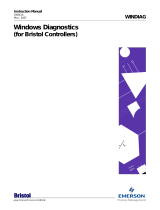The products listed above may be used with compatible Unitronics PLCs.
Detailed Installation Guides containing the I/O wiring diagrams for these models, technical specifications, and
additional documentation are located in the Technical Library in the Unitronics website:
https://unitronicsplc.com/support-technical-library/
The following section is relevant to Unitronics’ products that are listed with the UL.
The following models: IO-AI4-AO2, IO-AO6X, IO-ATC8, IO-DI16, IO-DI16-L, IO-DI8-RO4,
IO-DI8-RO4-L, IO-DI8-TO8, IO-DI8-TO8-L, IO-RO16, IO-RO16-L, IO-RO8, IO-RO8L, IO-TO16,
EX-A2X are UL listed for Hazardous Locations.
The following models: EX-D16A3-RO8, EX-D16A3-RO8L, EX-D16A3-TO16, EX-D16A3-TO16L,
IO-AI1X-AO3X, IO-AI4-AO2, IO-AI4-AO2-B, IO-AI8, IO-AI8Y, IO-AO6X, IO-ATC8, IO-D16A3-RO16,
IO-D16A3-RO16L, IO-D16A3-TO16, IO-D16A3-TO16L, IO-DI16, IO-DI16-L, IO-DI8-RO4,
IO-DI8-RO4-L, IO-DI8-RO8, IO-DI8-RO8-L, IO-DI8-TO8, IO-DI8-TO8-L, IO-DI8ACH, IO-LC1, IO-LC3,
IO-PT4, IO-PT400, IO-PT4K, IO-RO16, IO-RO16-L, IO-RO8, IO-RO8L, IO-TO16, EX-A2X, EX-RC1 are
UL listed for Ordinary Location.
UL Ratings, Programmable Controllers for Use in Hazardous Locations,
Class I, Division 2, Groups A, B, C and D
These Release Notes relate to all Unitronics products that bear the UL symbols used to mark products that
have been approved for use in hazardous locations, Class I, Division 2, Groups A, B, C and D.
Relay Output Resistance Ratings
The products listed below contain relay outputs:
Input/Output expansion modules, Models: IO-DI8-RO4, IO-DI8-RO4-L, IO-RO8, IO-RO8L
◼ When these specific products are used in hazardous locations, they are rated at 3A res, when these specific
products are used in non-hazardous environmental conditions, they are rated at 5A res, as given in the
product’s specifications.




















